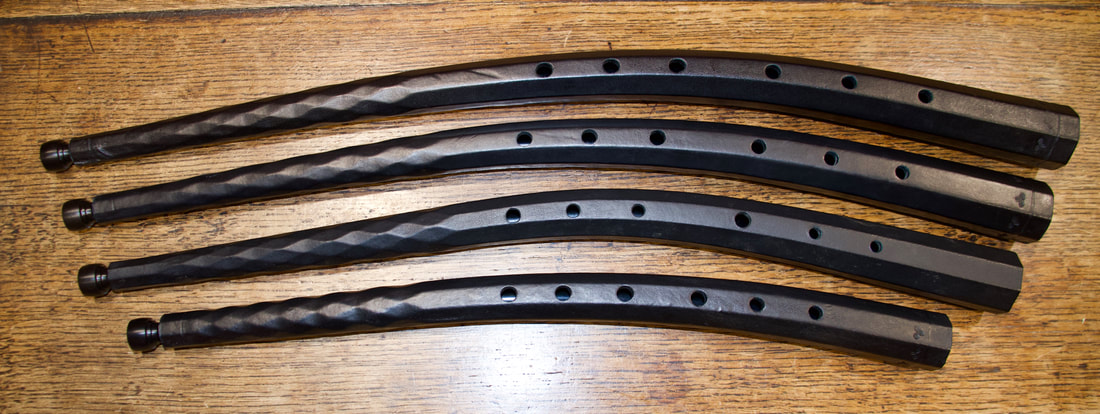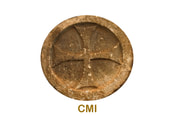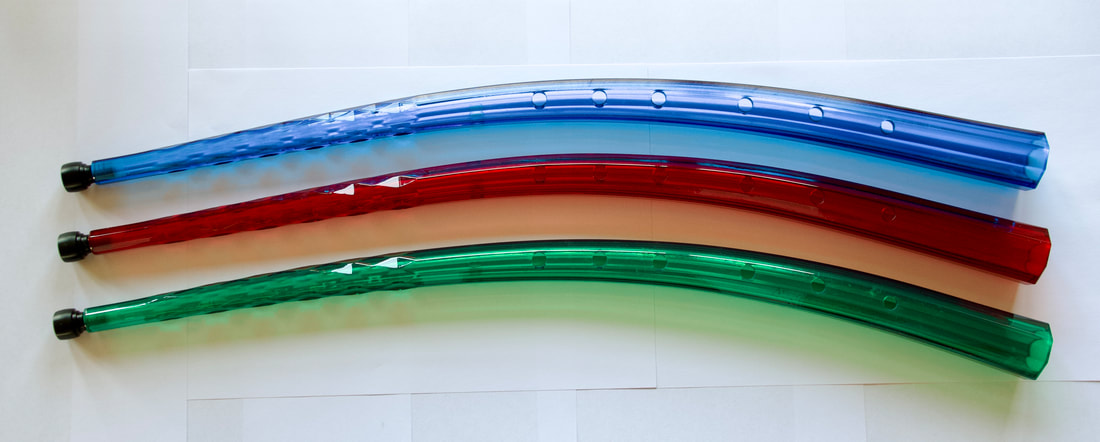The Swan by Timothy Roberts
|
“One of the most striking improvements recently in Early Music instrumental playing has been in the brass department." Thus said the magazine Music & Musicians of the performing group His Majestys Sagbutts & Cornetts following a concert at the London Banqueting House in Whitehall. The Christopher Monk workshops are proud to have been at the forefront of this development since the first stages of the revival in the 1950’s.
Christopher Monk was amongst the first to make reconstructions of the cornett (or cornetto), the highly regarded virtuoso wind instrument whose top players commanded higher fees than any others in the early seventeenth century. Monk made the instrument easily available to enthusiasts by manufacturing reliable reconstructions in resin which were (and continue to be) excellent instruments for getting started. He put cornetts in the hands of the late David Munrow and, largely through Munrow’s Early Music Consort of London, the cornetto began to regain its former popularity. It is now played at amateur and professional levels across the world from New Zealand to New York, heard with increasing frequency at major music festivals and enjoys excellent and increasing representation on recordings.
Following Christopher Monk’s death in 1991, the instrument-making workshops were taken over by Jeremy West, one of the world’s leading cornett players. By then not only were the Monk workshops making cornetts, but also mute cornetts, tenor cornetts and the whole serpent family from the soprano (known affectionately as the worm) to the great bass (or anaconda), along with all their mouthpieces. The workshops were relocated from rural England to new premises in London and, in partnership with craftsman Keith Rogers, instrument manufacture continued to thrive for many years.
Keith Rogers passed away in January 2008. They say that nobody is irreplaceable but, in Keith, you had a person for whom a replacement is extremely difficult: intelligent and imaginative coupled with enviable technical skill at the lathe and other tools, Keith was the perfect answer to the sort of problem that a workshop like this throws at you. See Keith's pictographic in memoriam coming here soon. Today the workshop is comprised of a team of players and makers who, between them, keep the flag flying. Nicholas Perry looks after everything from the tenor cornetts down to the bass serpents (and beyond!) whilst Jeremy West continues to be responsible for everything higher. Today the basic cutting of all wooden instruments is done on computer-controlled machines (Christopher Monk's dream back in the late 80's) which give astonishing levels of accuracy, consistency and finish. But, as ever, the cutting is just the start and these instruments receive a great deal of tender loving care before they are ready to go: hand finishing the instrument, leathering and tuning; every individual cornett, whether resin or wood, is tuned by Jeremy West, and the wooden instruments are partially blown in before they are shipped to their new owners. The same is also true for the tenor instruments and the serpents with Nicholas Perry.
“Thanks for your answer which I consider as a sunbeam through the clouds ...”
Customer in Sardinia receiving news that his cornett is ready to ship
"You really care about your customers!" Customer in Sweden
"Mama, they're singing" ... and with each cornett entry she repeated this statement
Sophia King, aged two and a quarter, listening to a live BBC Radio broadcast with Jeremy West and His Majestys Sagbutts & Cornetts
quoted with the kind permission of her mum and dad
Christopher Monk was amongst the first to make reconstructions of the cornett (or cornetto), the highly regarded virtuoso wind instrument whose top players commanded higher fees than any others in the early seventeenth century. Monk made the instrument easily available to enthusiasts by manufacturing reliable reconstructions in resin which were (and continue to be) excellent instruments for getting started. He put cornetts in the hands of the late David Munrow and, largely through Munrow’s Early Music Consort of London, the cornetto began to regain its former popularity. It is now played at amateur and professional levels across the world from New Zealand to New York, heard with increasing frequency at major music festivals and enjoys excellent and increasing representation on recordings.
Following Christopher Monk’s death in 1991, the instrument-making workshops were taken over by Jeremy West, one of the world’s leading cornett players. By then not only were the Monk workshops making cornetts, but also mute cornetts, tenor cornetts and the whole serpent family from the soprano (known affectionately as the worm) to the great bass (or anaconda), along with all their mouthpieces. The workshops were relocated from rural England to new premises in London and, in partnership with craftsman Keith Rogers, instrument manufacture continued to thrive for many years.
Keith Rogers passed away in January 2008. They say that nobody is irreplaceable but, in Keith, you had a person for whom a replacement is extremely difficult: intelligent and imaginative coupled with enviable technical skill at the lathe and other tools, Keith was the perfect answer to the sort of problem that a workshop like this throws at you. See Keith's pictographic in memoriam coming here soon. Today the workshop is comprised of a team of players and makers who, between them, keep the flag flying. Nicholas Perry looks after everything from the tenor cornetts down to the bass serpents (and beyond!) whilst Jeremy West continues to be responsible for everything higher. Today the basic cutting of all wooden instruments is done on computer-controlled machines (Christopher Monk's dream back in the late 80's) which give astonishing levels of accuracy, consistency and finish. But, as ever, the cutting is just the start and these instruments receive a great deal of tender loving care before they are ready to go: hand finishing the instrument, leathering and tuning; every individual cornett, whether resin or wood, is tuned by Jeremy West, and the wooden instruments are partially blown in before they are shipped to their new owners. The same is also true for the tenor instruments and the serpents with Nicholas Perry.
“Thanks for your answer which I consider as a sunbeam through the clouds ...”
Customer in Sardinia receiving news that his cornett is ready to ship
"You really care about your customers!" Customer in Sweden
"Mama, they're singing" ... and with each cornett entry she repeated this statement
Sophia King, aged two and a quarter, listening to a live BBC Radio broadcast with Jeremy West and His Majestys Sagbutts & Cornetts
quoted with the kind permission of her mum and dad


